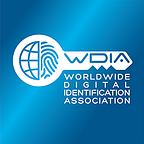Technologies, Standards and Regulations to Promote the Widespread Adoption of Digital ID in 2021–2022
The digital world is perfectly adapting to global trends. The integration of a huge number of digital developments is non-stop and sometimes chaotic. Nevertheless, government agencies are trying not only to control and organize software products using Digital ID, but also, when passing the appropriate certification, use such developments for global purposes. Today we will try to concretize existing projects in the field of digital identity, as well as define standards that will determine the protection of confidential data and their secure use.
Existing digital identity projects
• Digital driver’s license projects (also known as mobile driver’s licenses) are gaining traction in countries such as the US, UK, Australia and the Netherlands.
• The first trials of blockchain technology at Digital ID took place:
⁃ in Estonia, to help develop an innovative transnational e-residency program and ensure uniform cataloging of information for healthcare entities;
⁃ in the UK to see how blockchain can be used to make effective social benefits for citizens. Blockchain-based self-identity of citizens is being researched here for a decentralized digital identity architecture since 2018;
⁃ In Switzerland, as part of the creation of the non-profit digital identity association WDIA.
• Smart borders / smart airports are emerging even faster than planned. Combined with 1 billion e-passports in circulation, biometric passports (in particular with facial recognition technology), they were able to offer travelers fast and high-quality border control.
• International recognition of electronic identity documents at the end of 2018 according to the European Union Electronic Identification and Signature Regulation (eIDAS) for more than 500 million people. This means that existing and future national digital identity schemes must be compatible across the EU. However, Member States are not required to implement a digital identifier scheme.
Standards to promote digital data interoperability and interoperability
• A new ICAO Working Group on Digital Identities has been established, led by Australia.
• The US Department of Commerce’s National Institute of Standards and Technology (NIST) has provided a federal grant to support the further development of secure digital driver’s license-based IDs.
• A comprehensive LDS2 concept, or the “future” of e-passports, has been implemented at ICAO based on NTWG developments.
• ISO SC17 WG10 — Task Force 14 Mobile Driver’s License — has begun work on verification standards for Mobile DL and defined the scope of offline verification. In 2018, draft specifications for both offline and online validation were released for the new work item.
• The IATA Mobile Identity Working Group was established in 2016 and began work in 2017. One of the products supporting this development in 2020 is Multipass technology.
